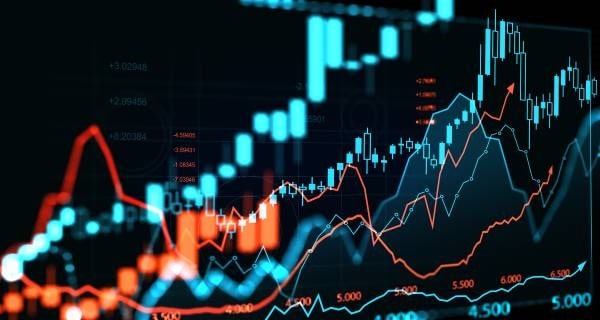Many of the events that happen every day in the world have an impact on the exchange rates of different currencies. The Forex market can be a challenging field for even the most experienced traders. Understanding how the currency market works and what strategies can work best is crucial to emerging stronger from these periods.
The Forex market has very rapid fluctuations
Financial volatility refers to fluctuations in the prices of financial assets, and in the case of Forex, this translates into changes in exchange rates. It is important to understand that during periods of high volatility, prices can move sharply in short periods of time.
This can create both significant opportunities and high risks. A common approach is the use of financial instruments such as CFDs (contracts for difference) in the implementation of these strategies.
Volatility can also be seen as a measure of uncertainty in the market. The higher the volatility, the greater the degree of uncertainty and risk. Therefore, it is crucial for traders to be prepared to adapt quickly to changing market conditions and adjust their strategies accordingly.
Using risk management tools, such as stop-loss and take-profit, can help mitigate the risks associated with high volatility.
Factors contributing to volatility
There are several factors that can contribute to volatility in the Forex market. Economic and political events, such as elections, monetary policies, and natural disasters, have a significant impact.
Moreover, decisions made by central banks regarding interest rates can cause abrupt changes in the markets. These factors are especially important because they can directly affect your trading strategies and, consequently, your final results.
Another factor that can influence Forex market volatility is economic data such as employment reports, gross domestic product (GDP), and consumer price indices (CPI).
These indicators provide insight into a country’s economic health and can have a significant impact on the value of its currency. Traders should keep an eye on these data releases and be prepared to react quickly to any surprises or deviations from market expectations.
Forex Trading Strategies During High Volatility Periods
Adopting appropriate strategies is essential when dealing with a volatile Forex market. A common strategy is “news trading,” where traders try to profit from the market’s reaction to important events.
Another technique is scalping, which involves making numerous small trades to take advantage of minor price movements. It is also crucial to implement proper risk management to protect against potential losses.
A useful strategy during periods of high volatility is the use of pending orders, such as limit orders and stop orders. These orders allow you to enter or exit the market at a predetermined price, which can be beneficial when prices are moving quickly and it is difficult to execute trades manually.
However, it is important to remember that during periods of extreme volatility, even pending orders may be difficult to execute at the desired price due to widening spreads and price slippage.
Recommendations for traders who operate in Forex
If you are new to Forex trading, it is vital that you start with a demo account to practice without risking real capital. This experience will give you an idea of how the markets react to different events and allow you to develop your skills without high risk.
For experienced traders, staying up to date with global events and technical analysis is a must to quickly adapt to changing market conditions. Always remember to manage your emotions to avoid impulsive decisions and plan your moves in advance.

